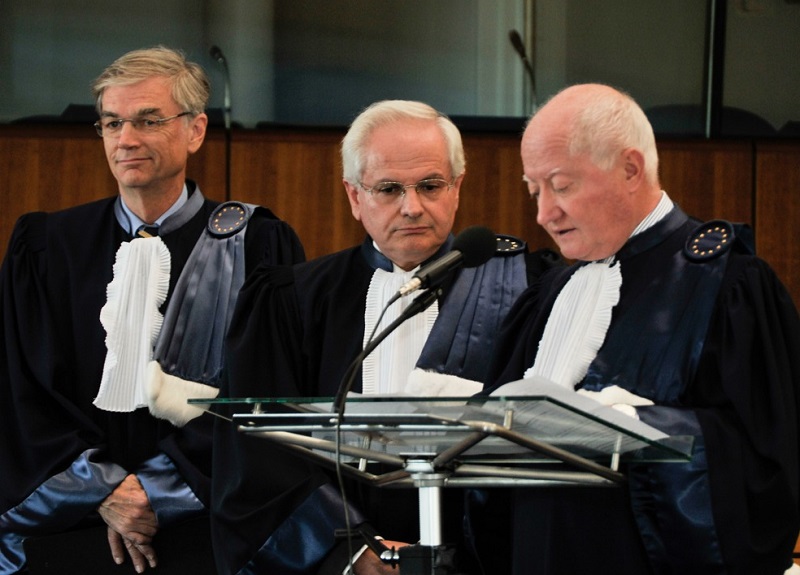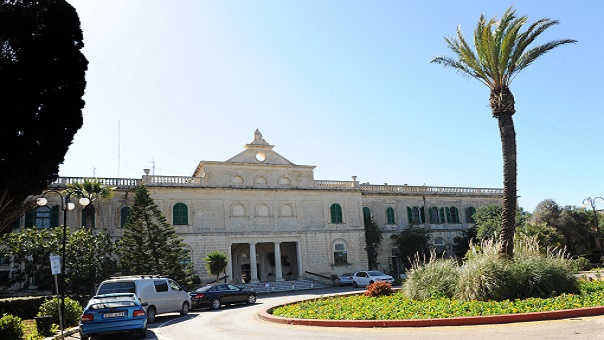The financial, safety and human resource shortcomings at Mount Carmel Hospital highlighted in a national audit report reflect concerns on the Mental Health Commissioner role raised four years ago by European Court of Human Rights Judge Vincent DeGaetano.
The National Audit Office report, tabled in Parliament on Wednesday, gave a snapshot of the situation at Mount Carmel Hospital, which is understaffed, underfinanced and in need of a complete overhaul.
The hospital needs €55 million annually to operate “adequately,” but the government allocated €35 million to mental health in 2018.
Earlier this year, Mental Health Commissioner John Cachia also highlighted the need for better safety within the hospital, and to invest towards more professional education. In his annual report, he said the dedication shown by staff could not be expected to make up for the “lack of investment in the physical environment of care facilities”.
Yet his role should also be scrutinised. Year after year, reports have revealed that the place is understaffed and in constant need of attention. And what has changed?
The contradictory roles of the Mental Health Commissioner had been voiced by European Court of Human Rights Judge Vincent DeGaetano in 2014.
Speaking at a seminar on mental health held under the auspices of former President George Abela, DeGaetano had pointed out that the Commissioner was appointed by the Prime Minister and accountable to the Health Minister.
Certain jurisdictions had an Ombudsman for mental health and the Commissioner, to a certain extent, fulfilled this role. However, Judge DeGaetano pointed out that, in Malta, the State provided almost all the facilities for people with mental health problems.
“As a result, the Commissioner – in his role – has to supervise the role of the State and, where needed, criticise the State,” DeGaetano had said. The situation remains unchanged.

European Court of Human Rights Judge Vincent DeGaetano (centre). Photo: John Ambrogio.
The Commissioner’s role includes carrying out regular inspections – at least on an annual basis – of all mental health facilities to ensure that patients’ rights and the law was being upheld. He also has to report any case of a breach of human rights to the “appropriate competent authority” and make his recommendations.
While the Commissioner was expected to fulfil his role according to his own individual judgment, something every head of department was expected to do – the law clearly said that it was “in relation to particular cases” but he shall “be accountable for his performance to the minister”.
Judge DeGaetano had questioned why the Commissioner should act in his own individual judgment only in relation to particular cases especially since the range of his duties included also those of a general nature, such as safeguarding the rights of those with a mental health disorder and reviewing policies and making the required recommendations to the authorities.
Over the years, the problems continued to pile up. Referring to the hospital’s financial problem, the audit office said the situation became worse considering the hospital’s “significantly pressing infrastructural situation”. The hospital, built in 1860, was now outdated, overcrowded in some wards with inadequate sanitary facilities.
A number of wards were not used because these were deemed to be unsafe and a number of areas were closed off to patients because of pending maintenance works – some of which were started but never finished due to other pressing needs.
The financial deficient “intensifies” in the absence of a substantial capital investment in the hospital’s infrastructure as part of the already limited funds were used towards Mount Carmel Hospital’s “critical infrastructural situations brought about by years of neglect”.
The audit office welcomed the government’s commitment to invest €30 million over five years in the hospital’s structural defects but pointed out that there was no mention of providing more funds for human resources or decentralising mental health to the community.
The NAO is, however, “more concerned that not even this limited allocation can be fully utilised towards the mental health patient receiving the quality of service he/she deserves”. Unless the government budget changed, the hospital will still “fall significantly short” from operating smoothly.
To make matters worse, the audit office highlighted a number of deficiencies showing that, in certain cases, the limited funds were not used to their full potential by hospital management. For example, a “very significant number” of patients did not need require to be hospitalised at Mount Carmel.
The report highlighted shortages in staff across the board – ranging from management, doctors, occupational therapists, social workers to nurses. With a nursing complement of 420, there were still another 233 nurses required to cope with the patients. Even the finance department was short-staffed with financial controller pointing out that he did not have enough qualified employees in his office.
The audit office also expressed concern at the high turnover for the post of CEO at Mount Carmel – three were appointed over the past two years and the latest, Stephen Sultana, appointed in 2018. Sultana is a banker by profession and a former chairman of Kalaxlokk Ltd.
It strongly recommended a detailed study, involving technical professionals and front line personnel, to ensure that funds are invested in the most efficient and cost-effective manner. There needs to be a complete review of the priorities to ensure that, apart from the infrastructure repairs, the funds will be used to improve the internal operational issues and mental health services.













